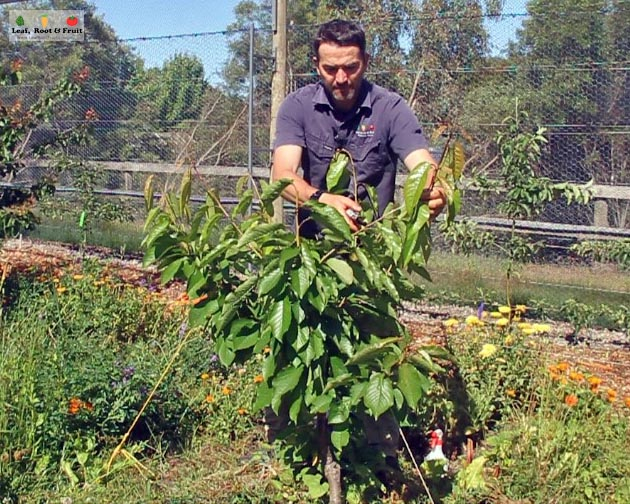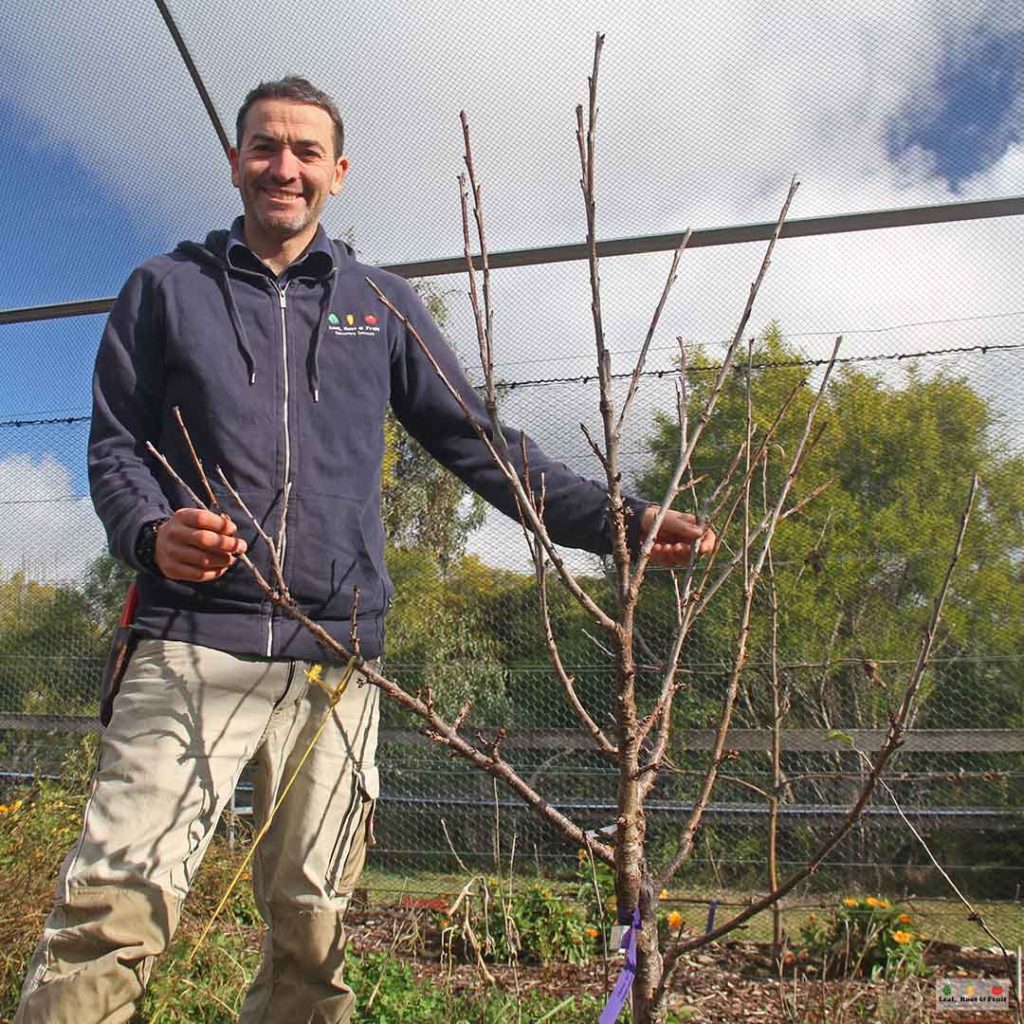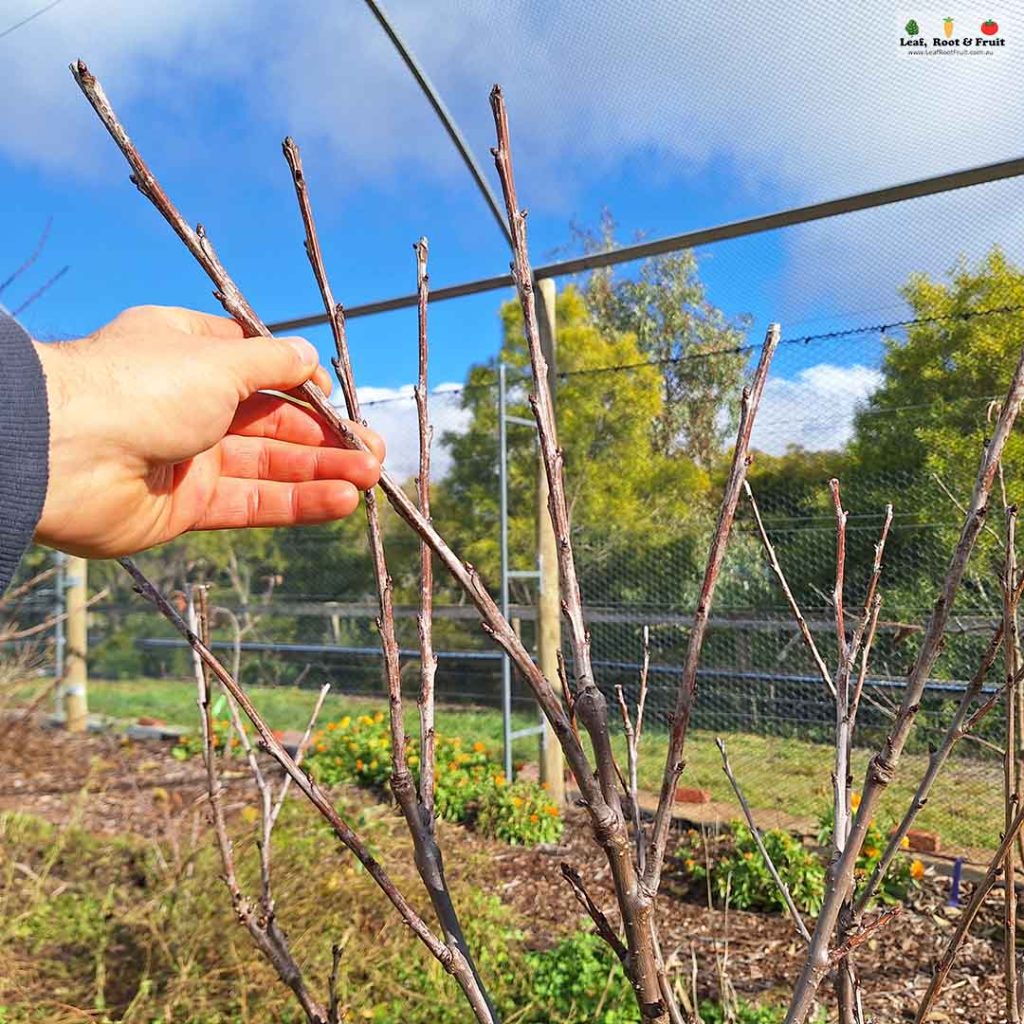
I usually advocate for planting fruit trees on dwarfing rootstock (with the exception of citrus). Until recent years, there were no dwarfing rootstocks available for cherries. Most cherry trees in backyard orchards have been planted on full sized rootstocks. These trees are likely to have vigorous growth and grow into very large trees. One of the traditional ways to keep these trees small is using a method called Spanish bush pruning. I recently pruned my cherry tree and created a short video to explain this method.
Essentially, you want to ensure that each branch is tipped pruned to around 25 to 30cm long. This may mean that you need to prune the tree several times per year. The ultimate aim is a small, very dense and bushy tree that will be very productive.
Update: Winter 2024
My cherry tree has responded well to the Spanish bush pruning that I conducted in December 2023. You can see the structural framework start to come together.
I accidently left a couple of the branches slightly longer than is ideal. They are around 40 cm and should have been trimmed back closer to 25 to 30 cm. I’ll rectify that when the tree breaks dormancy in spring.


Cherry trees are very susceptible to diseases caused by pruning. As such, they shouldn’t be pruned in autumn or winter. Only prune cherry trees when they are actively growing.
Check out my comprehensive fruit tree pruning guide for more information on pruning fruit trees, preventing disease and what are the best tools for pruning fruit trees.


Hello Duncan, we are removing a dwarf Cherry and a quince tree. Each has borer in the trunk and a pile of sawdust beneath the holes. I presume the ground will also be contaminated with pupae or grubs as they hatch. How long do we need to leave the soil with no tree before planting something else?
Kind Regards,
Pauline
Hi Pauline,
That’s a shame. It’s actually the larvae stage that does the damage to the tree. I’m just not sure if they drop into the soil to pupate or stay in the trunk to do this. Fortunately, I have no experience with with borers in fruit trees, so am not sure what to advise you. If you are in suburbia then chances they will come from elsewhere. Perhaps plant a different type of tree in their place?
Good luck!
Duncan
Hi, Duncan
Is there any way I can begin to bring down my cherry trees that are already about two metres high and equally wide?
Hi Catherine,
you could try. However, cherries are prone to diseases caused by pruning. So I’d focus on great tool hygiene. A heavy prune at that stage in its life is likely to result in a tailspin of even more vigour, regardless of the pruning technique that follows. There’s quite a few other considerations to throw into the mix, but that worthy of a whole day workshop or rather lengthy blog post in itself!
Happy gardening
Duncan
Thanks, Duncan.